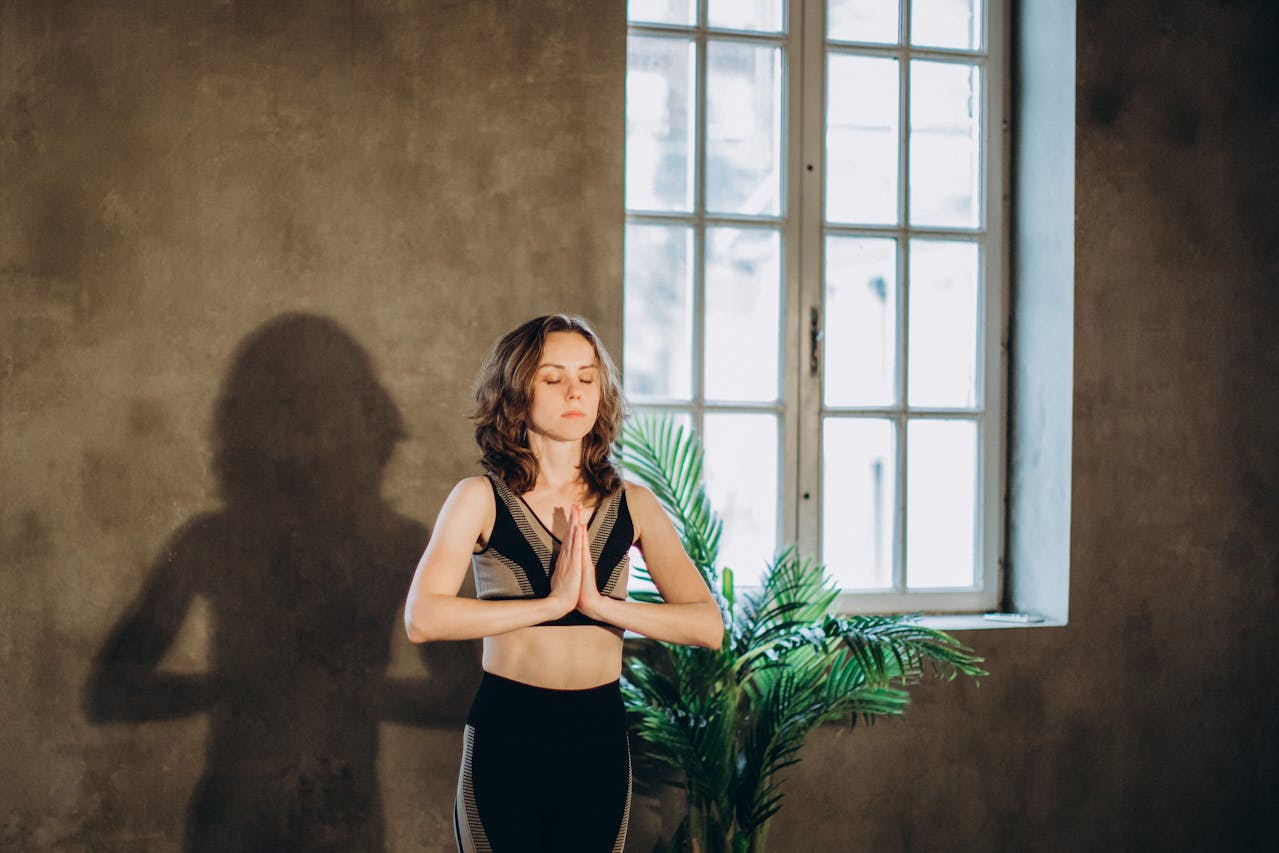Meditation and confidence are often linked in discussions about personal growth and self-improvement. Confidence is a fundamental quality that affects all areas of life, from professional achievements to personal relationships. However, cultivating and maintaining confidence can be a challenge for many. Meditation offers a powerful and transformative approach to building self-assurance by fostering mindfulness, reducing stress, and promoting emotional balance. This blog explores how meditation enhances confidence and provides practical insights into integrating this practice into daily life.
Understanding the Relationship Between Meditation and Confidence
Meditation and confidence are connected through the mind’s ability to regulate emotions, thoughts, and reactions. Meditation promotes mindfulness, enabling individuals to become more aware of their inner world. This heightened awareness allows them to identify and challenge self-limiting beliefs, which are often significant barriers to confidence.
Moreover, meditation encourages a sense of self-acceptance by focusing on the present moment rather than past regrets or future anxieties. As individuals embrace their imperfections and strengths, their self-perception improves, naturally leading to greater confidence. This inner transformation empowers them to face challenges with resilience and assurance.
By fostering clarity and emotional stability, meditation reduces the impact of negative thought patterns. Confidence thrives in a mind free from excessive self-doubt and criticism. This mental shift helps individuals approach life with a more optimistic and empowered outlook.
The Role of Mindfulness in Boosting Confidence
Mindfulness, a core component of meditation, plays a crucial role in confidence-building. Mindfulness involves focusing fully on the present moment, which helps individuals detach from unhelpful thought cycles. This practice teaches people to observe their thoughts and emotions without judgment, creating space to respond thoughtfully rather than react impulsively.
When applied to confidence, mindfulness enables individuals to identify situations where insecurity arises. Instead of succumbing to feelings of inadequacy, they learn to ground themselves in the present, reducing the influence of fear or self-doubt. Over time, this conscious engagement strengthens their ability to face challenges with poise.
Furthermore, mindfulness enhances self-compassion, an essential ingredient for confidence. Accepting oneself without harsh criticism fosters a positive self-image. This mindset encourages individuals to take risks and embrace opportunities, knowing that failure is a stepping stone rather than a reflection of worth.
Meditation as a Tool for Reducing Stress and Anxiety
Stress and anxiety are major obstacles to confidence. Meditation is widely recognized for its effectiveness in alleviating these mental states. Through focused breathing exercises and relaxation techniques, meditation calms the nervous system, reducing cortisol levels and promoting a sense of peace.
This state of relaxation provides individuals with the mental clarity needed to confront their fears. Confidence often diminishes when anxiety clouds judgment or amplifies self-doubt. Meditation counteracts this by creating a calm and focused mind, enabling individuals to approach situations with a balanced perspective.
In addition to reducing stress, meditation builds resilience by training the mind to handle adversity with composure. This newfound resilience further enhances confidence, as individuals feel equipped to navigate life’s uncertainties without being overwhelmed.
Practical Meditation Techniques to Build Confidence
Incorporating meditation into daily routines can significantly boost confidence. Simple practices such as deep breathing, visualization, and affirmation meditations are highly effective. Deep breathing exercises calm the mind and increase self-awareness, laying the foundation for confident decision-making.
Visualization meditation involves imagining oneself succeeding in challenging situations. By mentally rehearsing success, individuals strengthen their belief in their abilities, making them more likely to act confidently. Similarly, affirmation meditation encourages positive self-talk, replacing negative thoughts with empowering statements like “I am capable” or “I can overcome challenges.”
Consistency is key when practicing meditation for confidence. Dedicating just 10-15 minutes daily to these techniques can yield profound results over time. Establishing a routine ensures that meditation becomes a reliable tool for self-assurance.
Long-Term Benefits of Meditation for Confidence
The benefits of meditation extend far beyond immediate stress relief. Regular practice rewires the brain, fostering long-term improvements in emotional regulation and self-esteem. Research shows that meditation enhances activity in brain regions associated with empathy and self-awareness, both of which contribute to confidence.
Additionally, meditation strengthens an individual’s ability to set and achieve goals. Confidence flourishes when people witness their capacity to turn aspirations into reality. Meditation enhances focus and perseverance, essential qualities for overcoming obstacles and reaching milestones.
These long-term changes make meditation a sustainable practice for building confidence. It not only addresses the symptoms of insecurity but also transforms the underlying mental and emotional patterns that hinder self-assurance.
Overcoming Challenges in Meditation Practice
While meditation is beneficial, maintaining a consistent practice can be challenging. Many individuals struggle with distractions, impatience, or self-doubt about their ability to meditate effectively. Recognizing these obstacles as part of the journey is essential for perseverance.
Setting realistic expectations is crucial. Meditation is not about achieving a perfectly still mind but about developing a gentle awareness of thoughts and emotions. Adopting this perspective reduces frustration and encourages consistency.
Seeking guidance through meditation classes, apps, or support groups can also help individuals stay motivated. These resources provide structure and accountability, ensuring that meditation remains an integral part of their confidence-building efforts.
Integrating Meditation and Confidence-Building into Daily Life
Integrating meditation into daily life enhances its impact on confidence. Simple strategies such as starting the day with a mindfulness session or taking brief meditation breaks during work can reinforce self-assurance.
Pairing meditation with other confidence-boosting activities, such as journaling or affirmations, creates a comprehensive approach to personal growth. Reflecting on progress through journaling fosters a sense of accomplishment, while affirmations reinforce positive self-beliefs.
Meditation can also be adapted to specific challenges. For instance, practicing calming breaths before a public speaking engagement can reduce nervousness and enhance composure. Tailoring meditation to individual needs ensures its relevance and effectiveness.
Meditation and confidence are deeply intertwined, with meditation offering a powerful pathway to self-assurance. Through mindfulness, stress reduction, and long-term mental transformation, meditation equips individuals to overcome insecurities and embrace challenges with resilience. By committing to regular practice and integrating it into daily routines, anyone can unlock the profound confidence that stems from inner peace and self-awareness.

